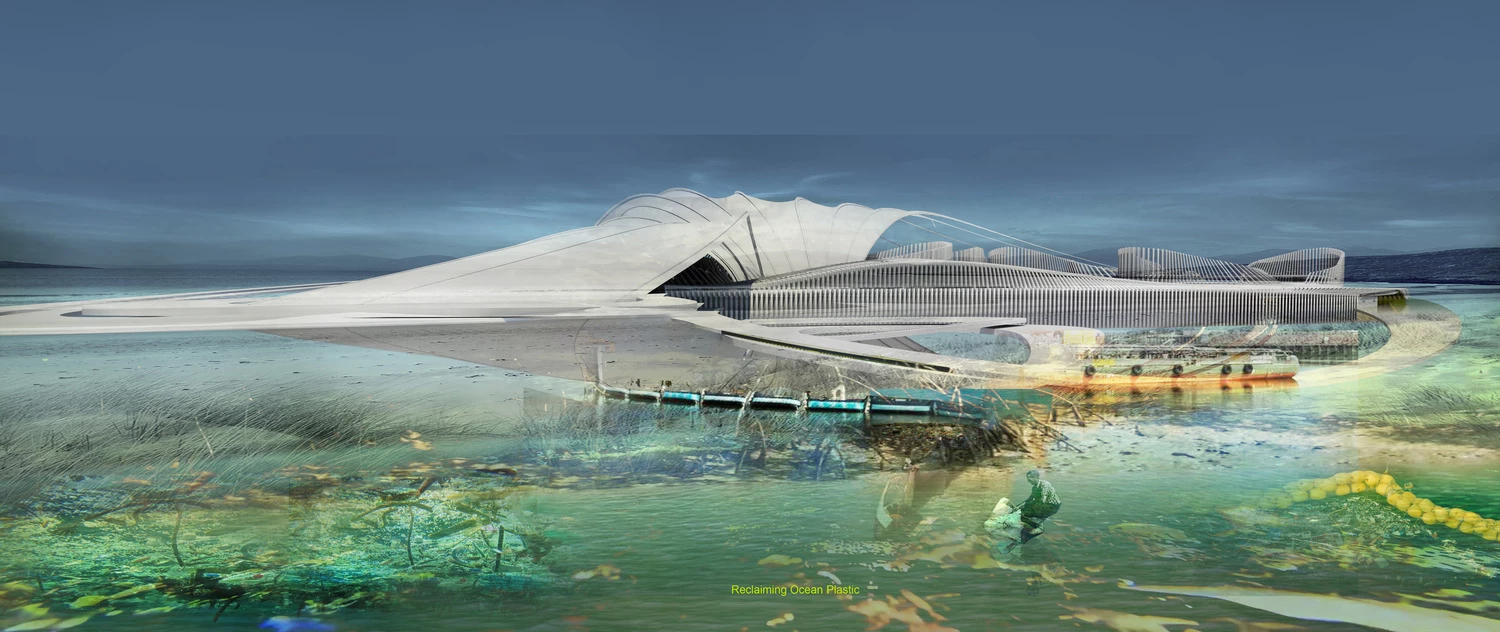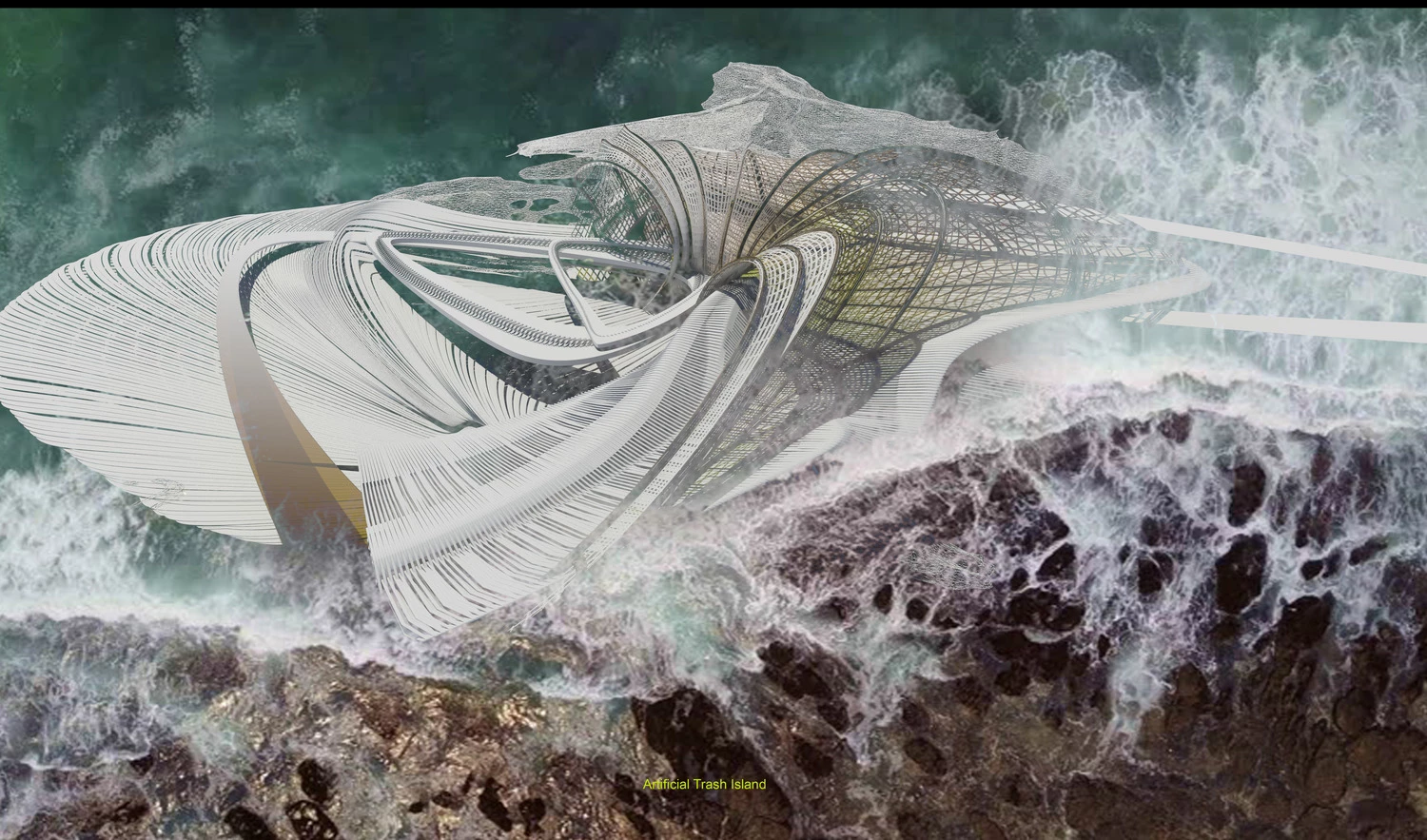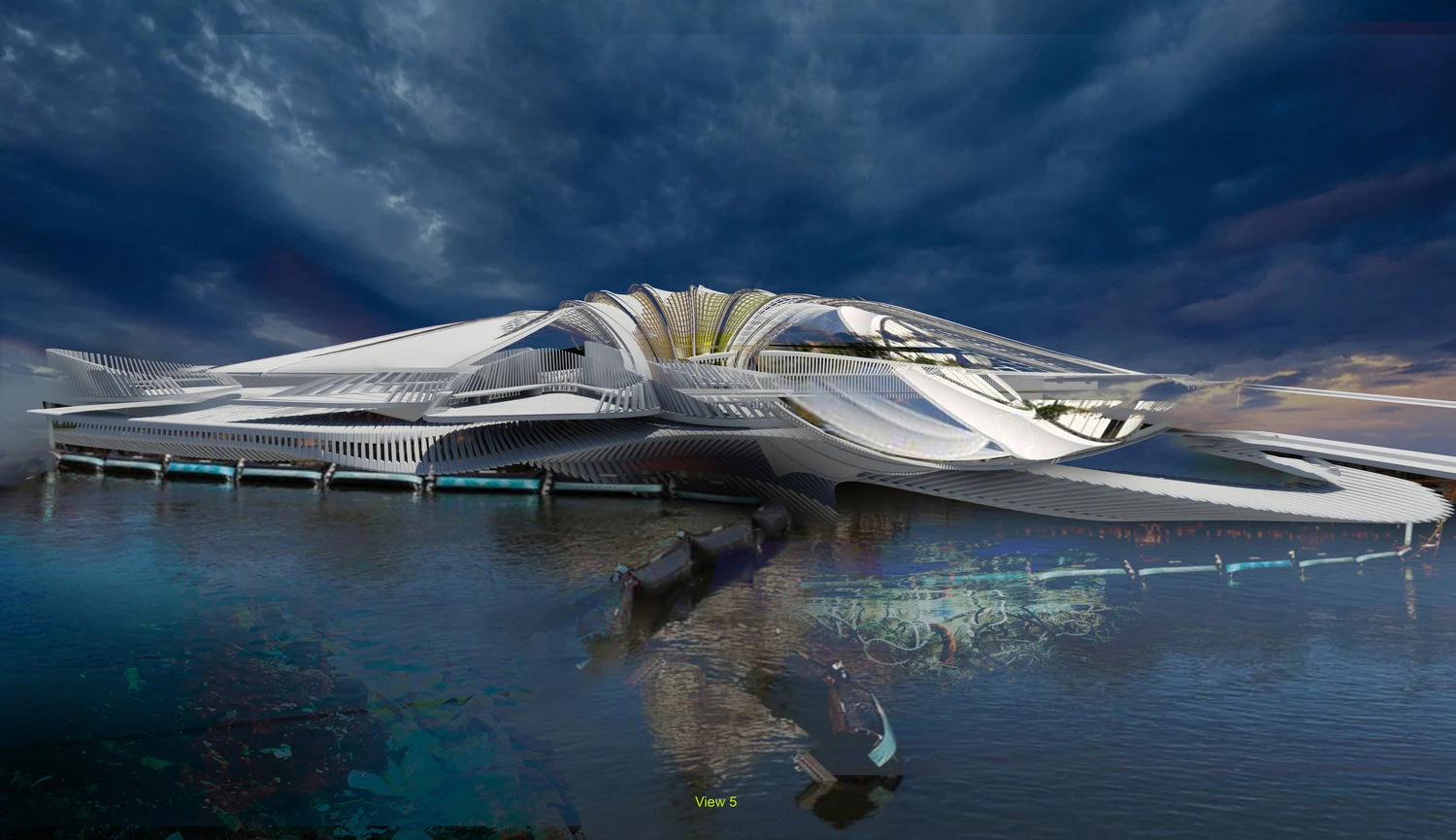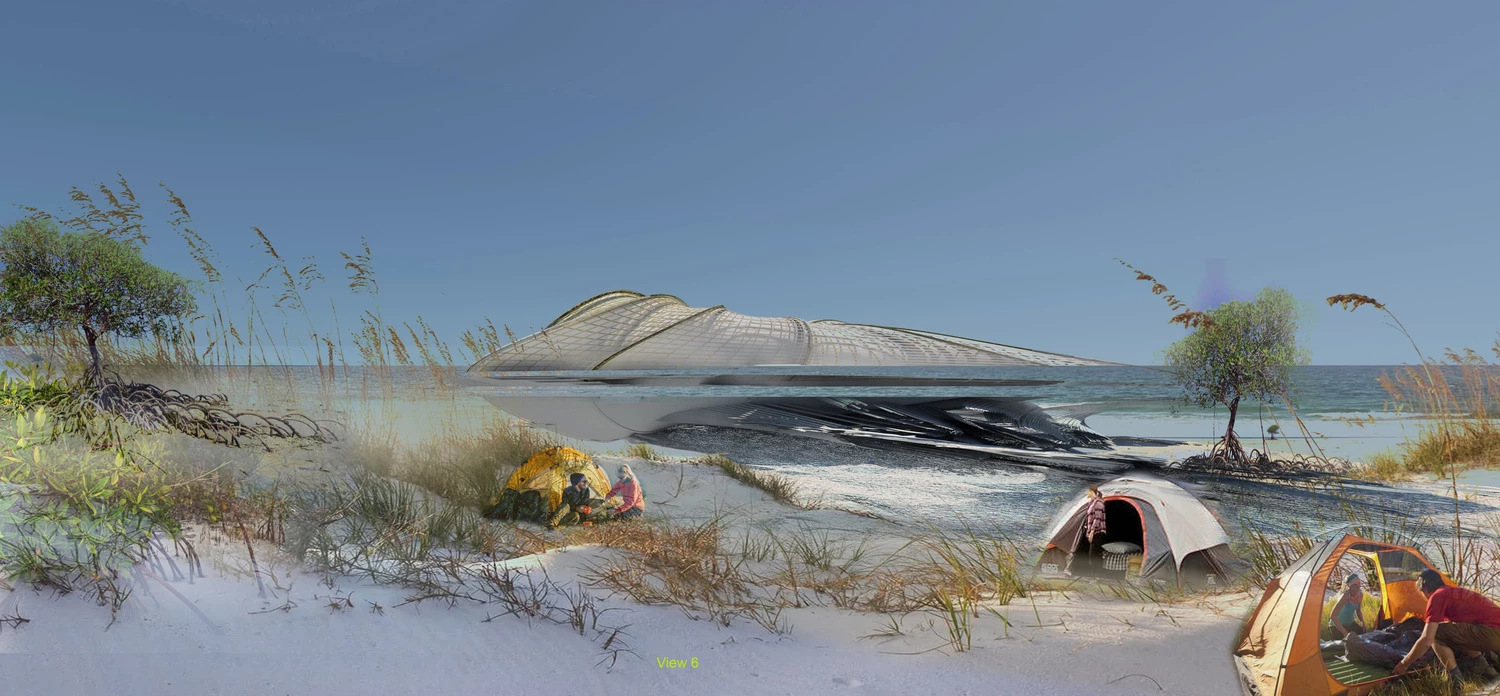Commissioned to design a sustainable floating hotel, Margot Krasojević Architects produces a proposal that's unconstrained by practicalities. The designer envisions making use of the massive amounts of plastic in the ocean as a building material.
The Recycled Ocean Plastic Resort is the latest in a long line of water-based proposals from Krasojević, including the Harmonic Turbine Tidal Hotel and revolving sail bridge. It's imagined as floating in the Indian Ocean, off the coast of the Australian external territory Cocos (Keeling) Islands. According to the designer, an increase in plastic pollution has damaged local ecosystems in that part of the world and the project aims to address this.
Structurally, it would consist of mesh-filled bags of reclaimed ocean waste – everything from bottles to tires would be used – which would be weaved together and float in one place, with an anchor on the ocean floor. Mangrove tree roots would grow around the mesh-filled bags for stability, with silt and sand used to cover it.
This floating trash heap would support a number of hotel rooms, as well as space for camping, while showers would use distilled seawater and power would come from solar panels. The project description calls for the whole thing to be able to self repair somehow, though there's nothing to say how that might be achieved, and the resort would also be resilient to flooding, thanks to a system inspired by the mangrove trees.
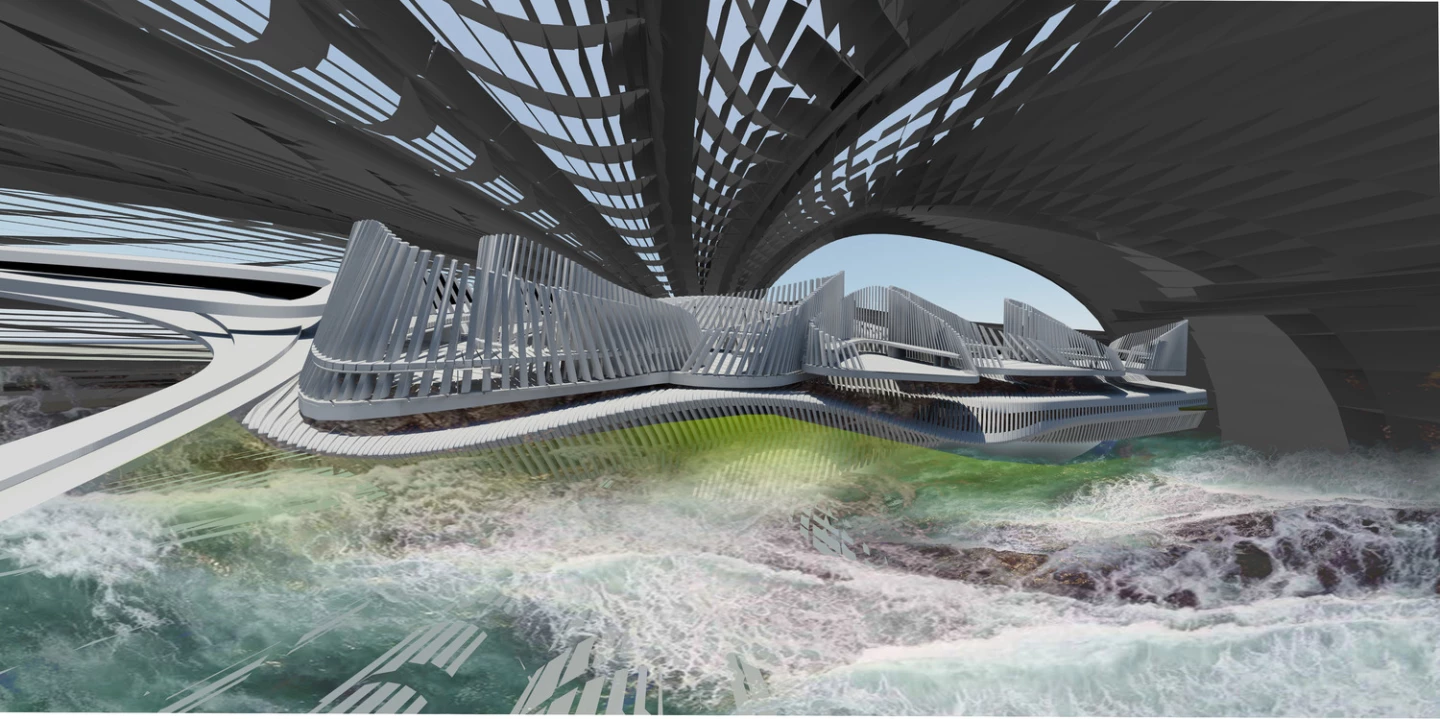
"A major design element is a pleated structure of interlaced webbing, made from biodegradable-seeded concrete fiber mesh," explains Krasojević. "These ‘tentacles’ are released from the ceramicrete upon contacting with rising water levels. They expand and inflate into the oncoming swell sinking as they absorb water creating an artificial barrier trapping sediment and absorbing floodwater. In principle, they are the artificial mangrove roots that are the island’s life jacket in an emergency, as they expand the trapped sediment creating artificially engineered land almost like an inflatable runway.
"Each fully immersed tentacle expands and falls on top of the next creating a temporary wall preventing water from flooding the island whilst supporting it in case of damage. Once the storm stabilizes, the tentacles are emptied. Using pumps powered by solar panels, the water is redirected off of the island and released into the Indian Ocean. The tentacles expand on impact with water pressure retaining the island's buoyancy."
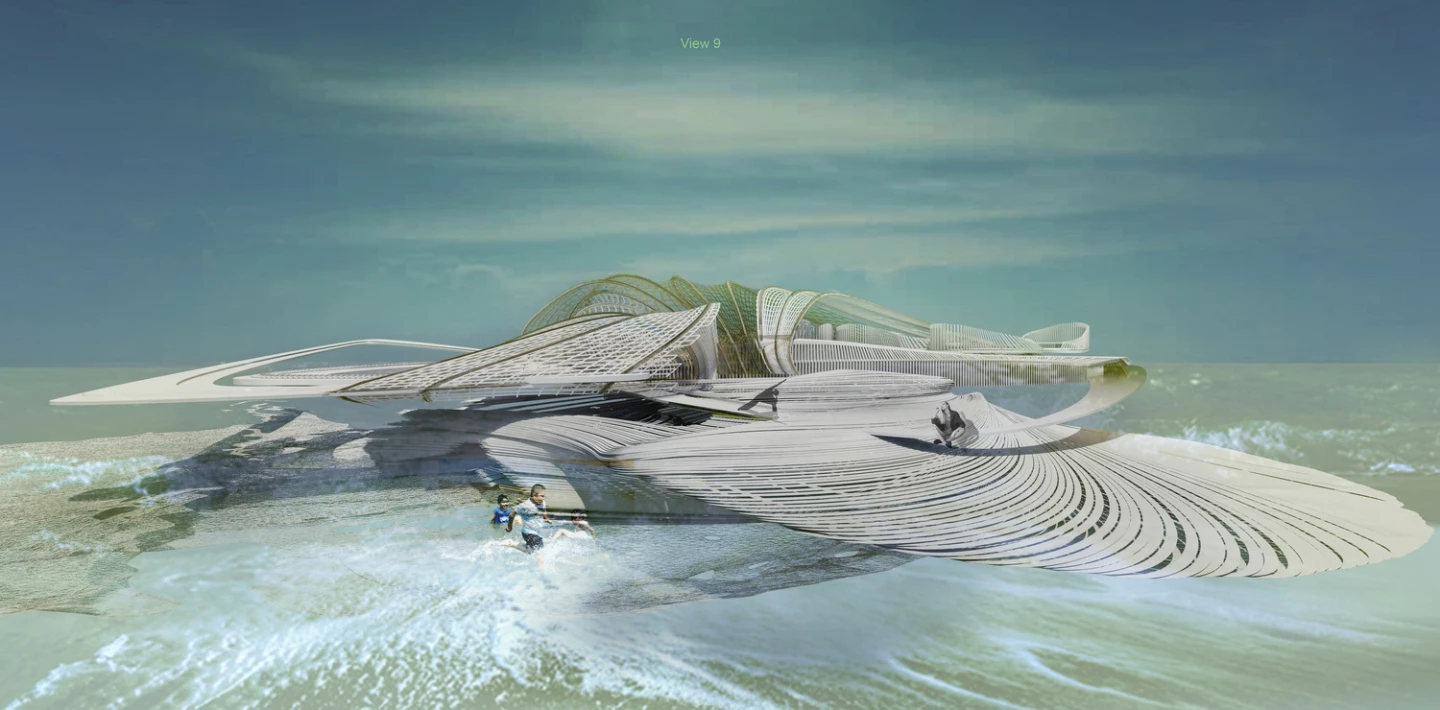
Of course, the design raises a number of questions and potential issues, including its long-term durability and whether the resort itself might become an environmental problem over time, the potential health and safety implications relating to building a resort on plastic waste, as well as the financial feasibility of such a project. But, like the recent eVolo Skyscraper Awards, the idea here seems to be more about provoking thought on what we can do about our ocean plastic waste problem. Does it succeed? Let us know in the comments.
Source: Margot Krasojević Architects

